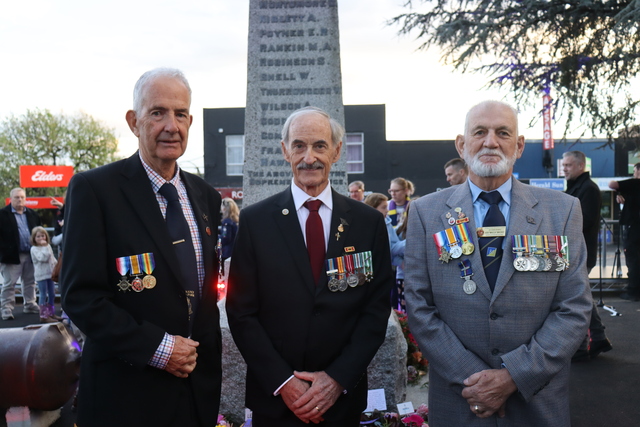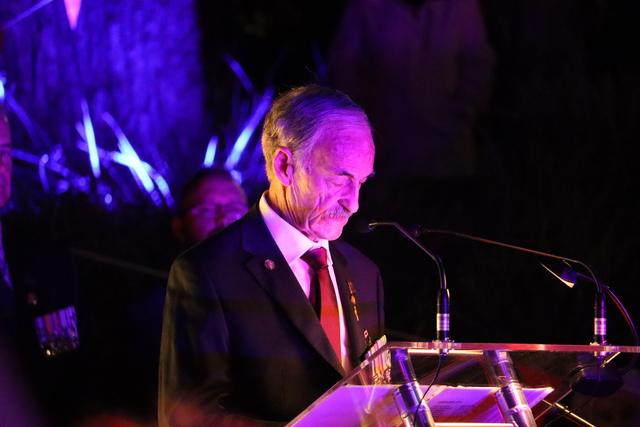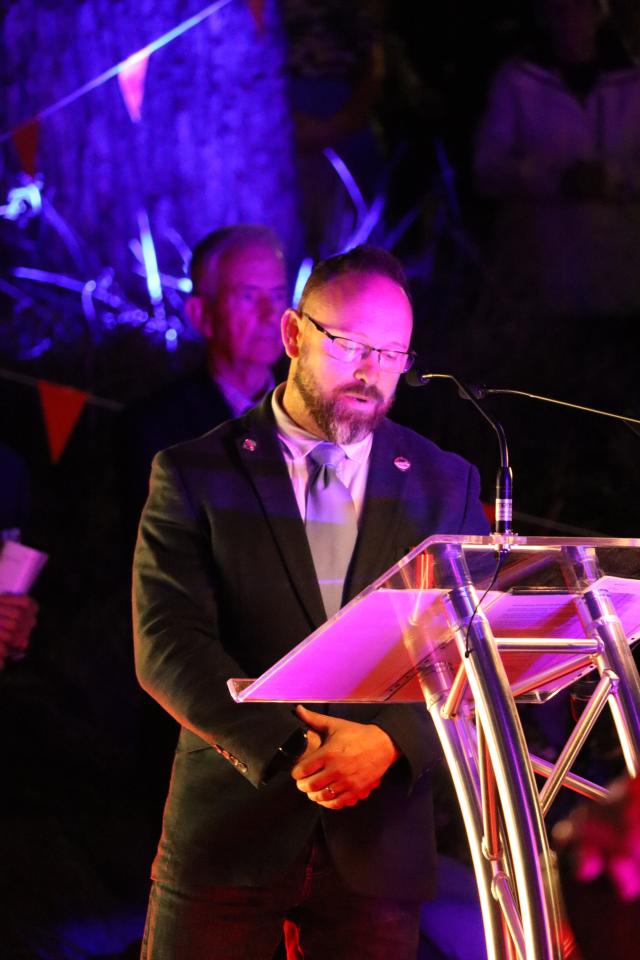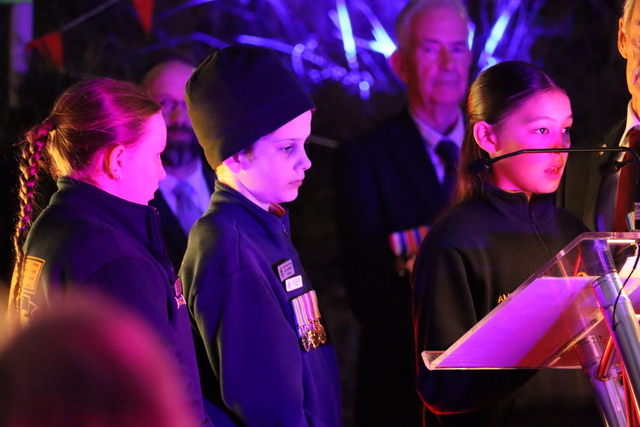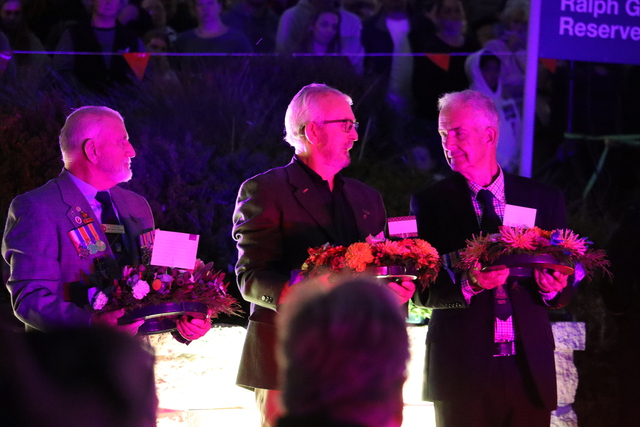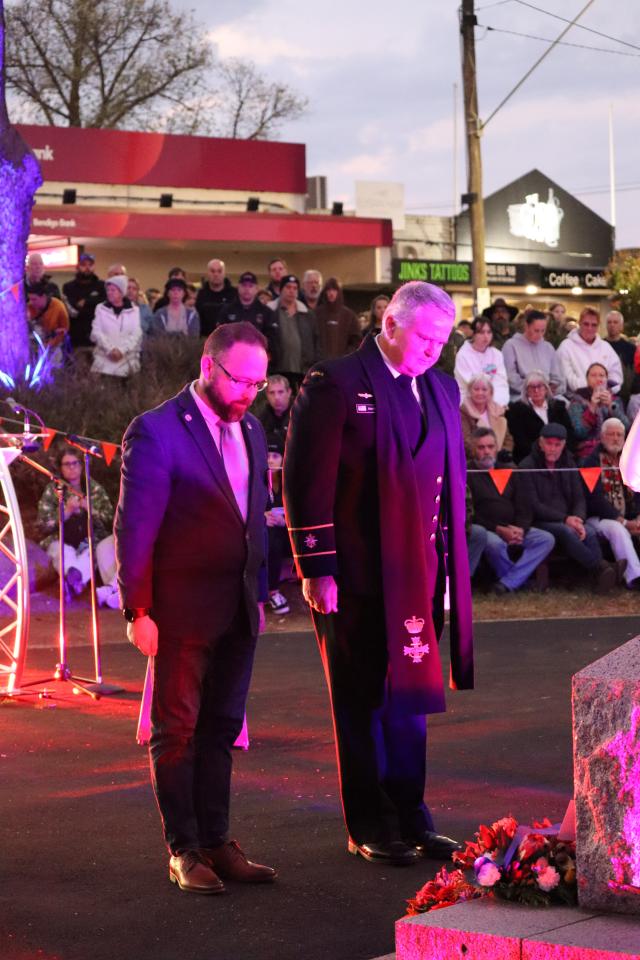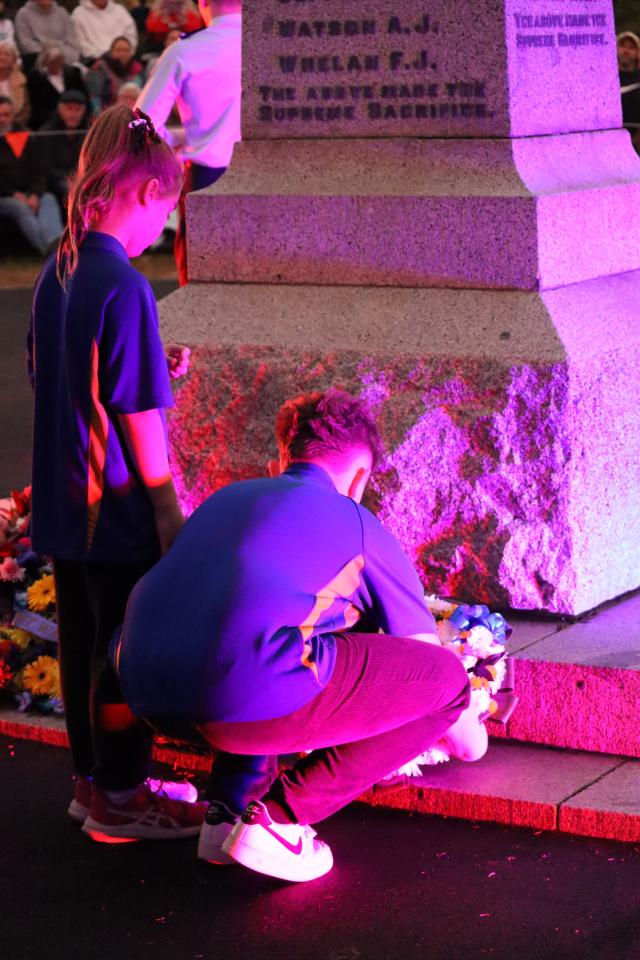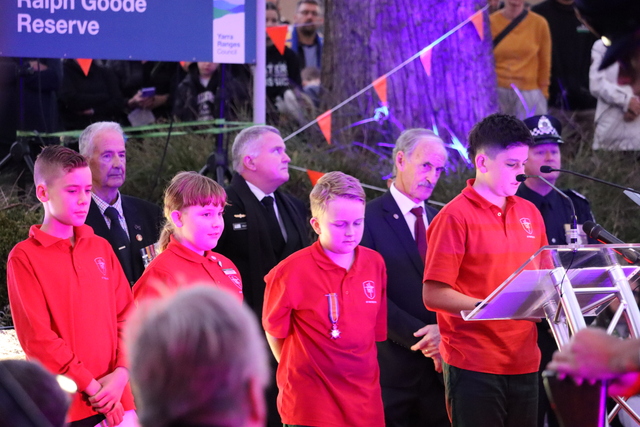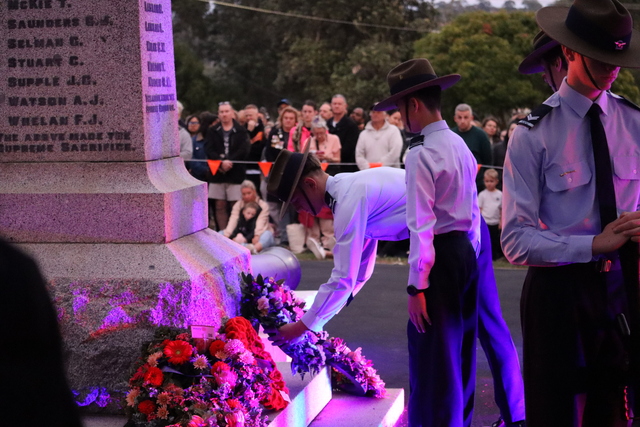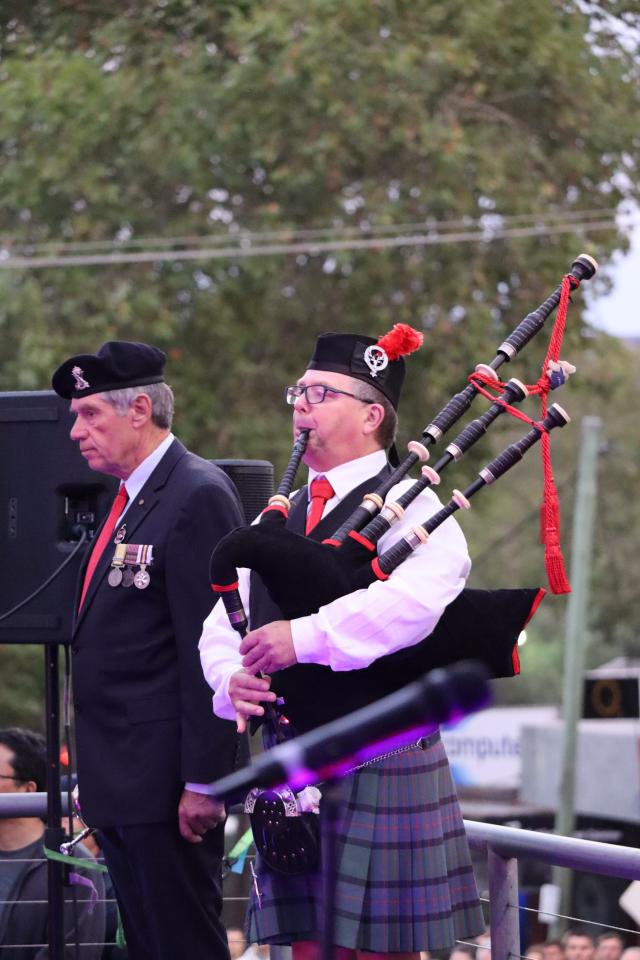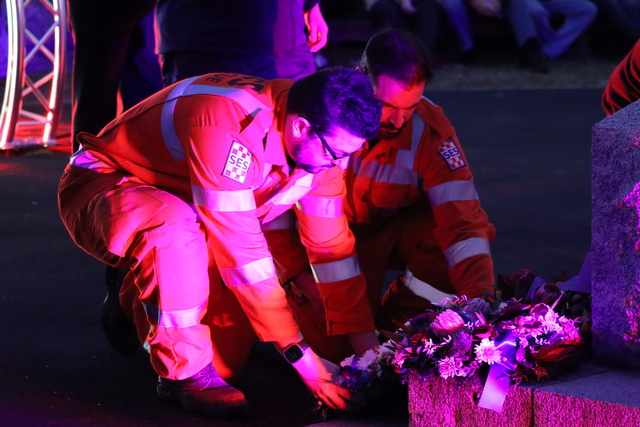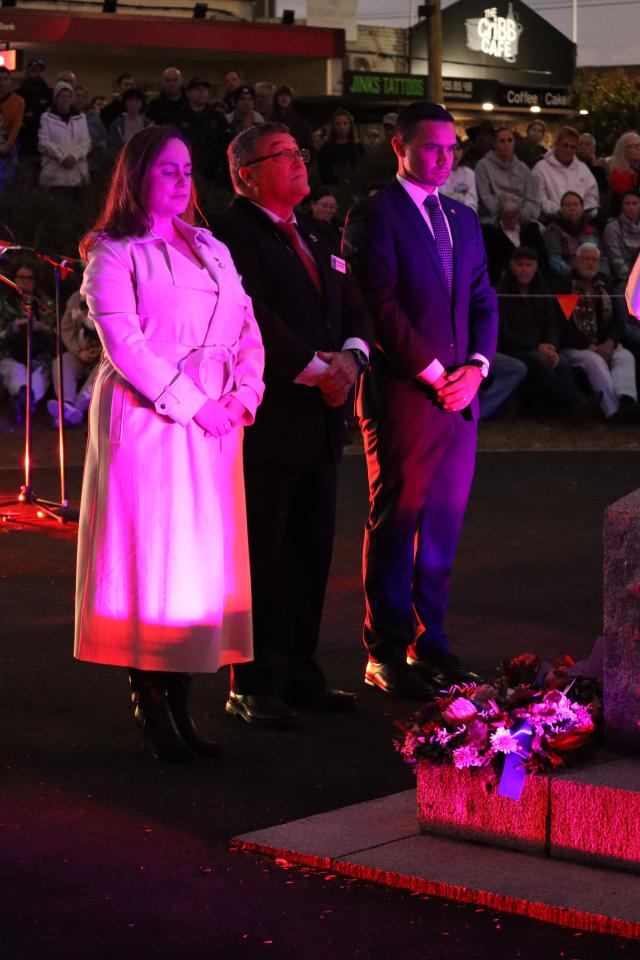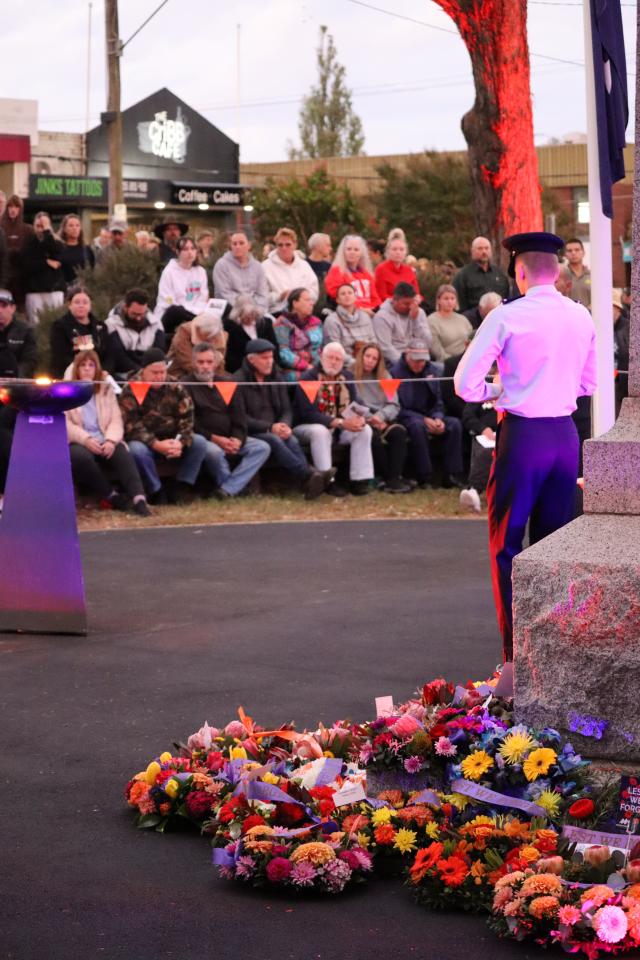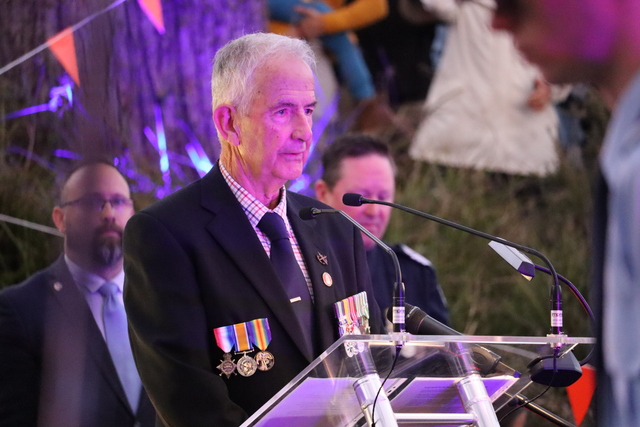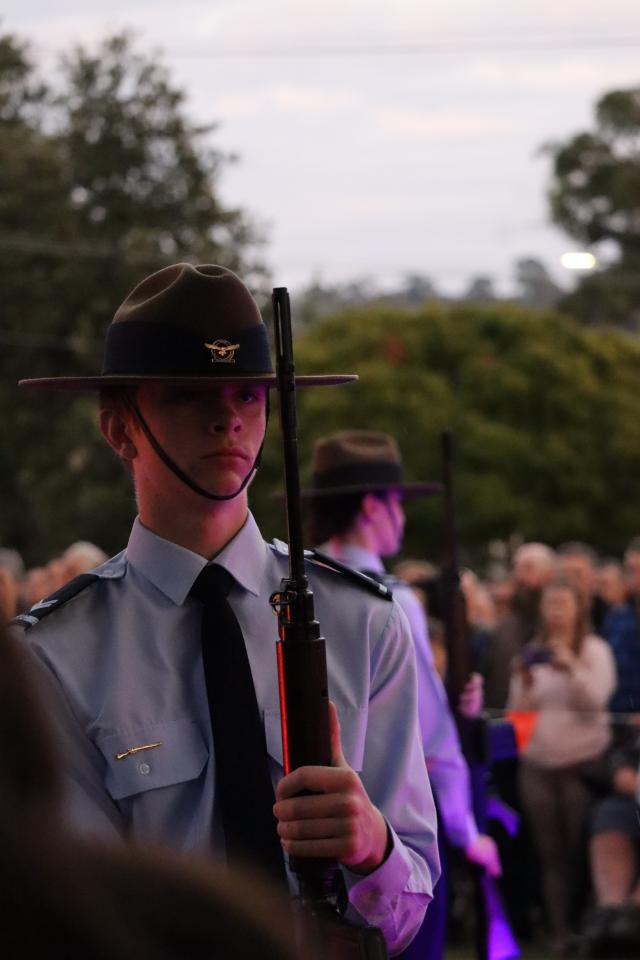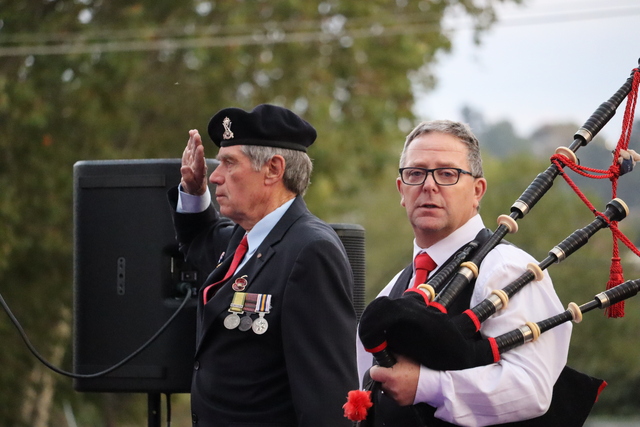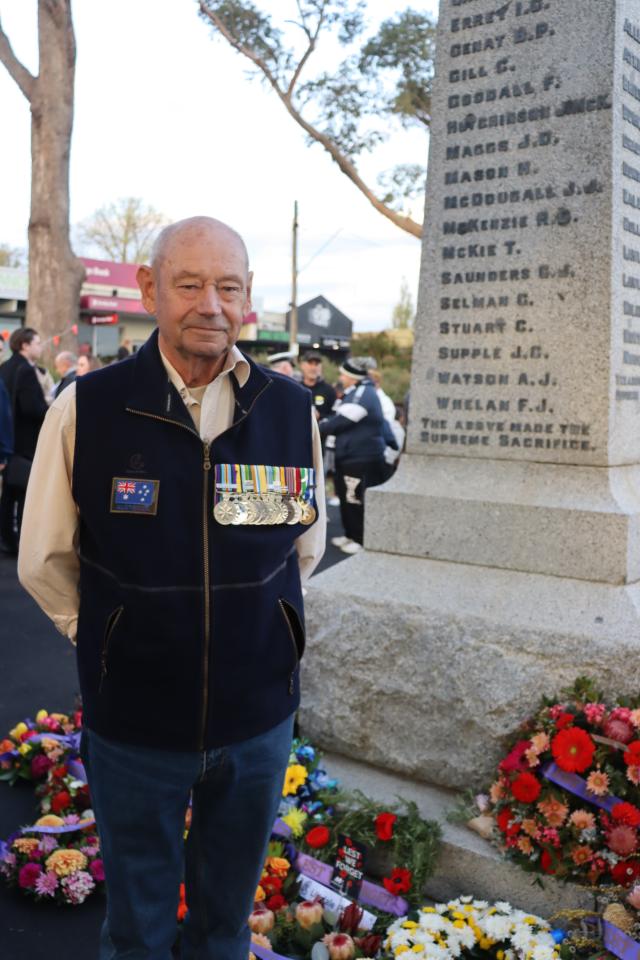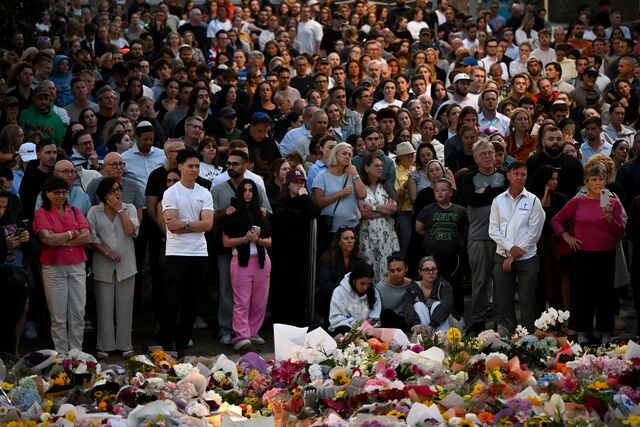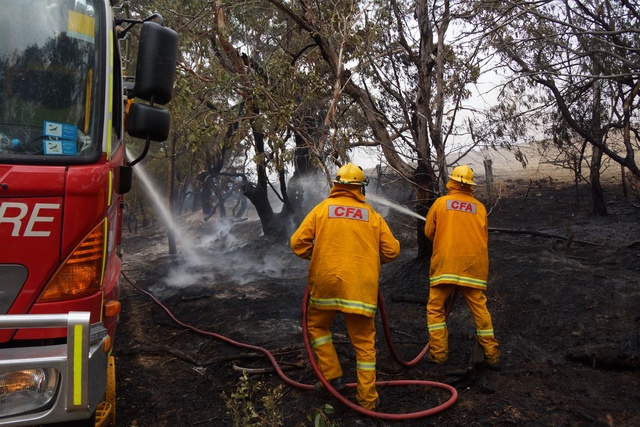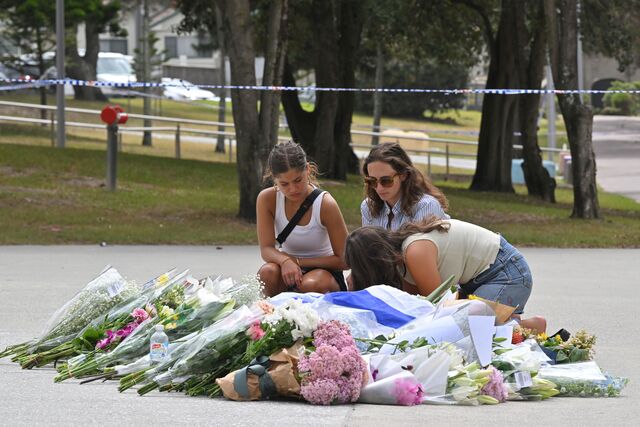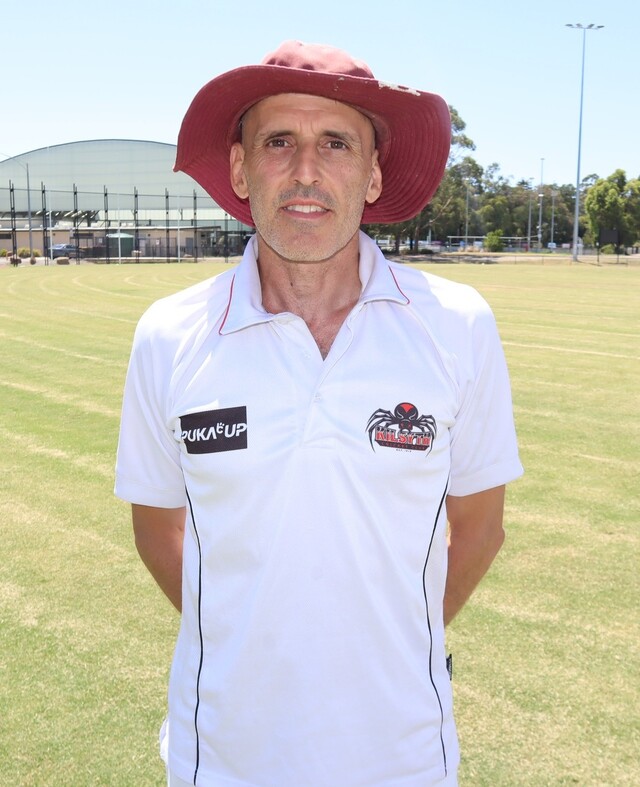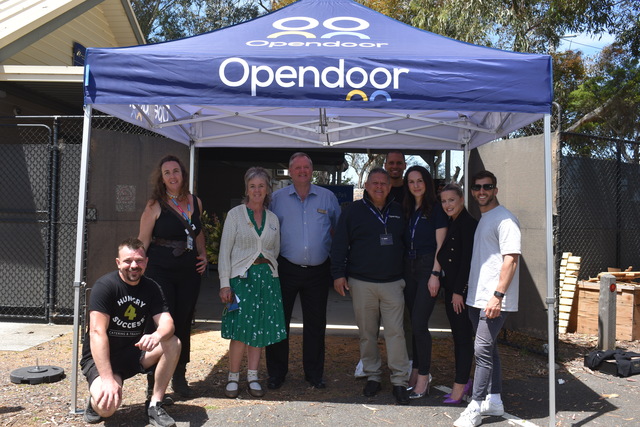As the last of the night sky lingered over Lilydale, thousands gathered at the war memorial to bring in the dawn of Anzac Day.
The dawn service, led by Lilydale RSL treasurer John O’Donahue, marked many anniversaries, including the 110th year since the Gallipoli landing, the 80th anniversary of the end of World War II and 50 years since the end of the Vietnam War, among a host of other significant milestones.
“We come together each year, at this time, to remember and honour the sacrifices that our defence men and women have made over the past 100 plus years, defending the freedoms of not just Australians, but many other nations since World War Two,” Mr O’Donahue said.
“At this time in our history, we face a world that has yet again torn with conflicts and tensions on many fronts, including in our own region.
“Today, we are reminded that freedom, democracy and peace are to be cherished, not taken for granted, that they must be defended, and we must always be ready and willing to once again stand and defend what we have, lest it be lost.”
As the eternal flame burned and the catafalque party stood guard of the Cenotaph, the gathered crowd was silent, paying their respects to all who never made it home from war.
Yarra Ranges Council deputy mayor Richard Higgins spoke of not just remembering these people as a name but as a person with family and friends.
“Each person who took up arms and took part was a person with a family and friends, a history, a community, back at home,” he said.
“They had hopes. They had dreams, things they had achieved, things they still wanted to do. Many had partners back at home waiting for them. Many had friends fighting right along beside them.
“When we talk about the thousands lost…it’s important that we never forget that every loss, every fallen soldier, every fallen service person, whoever never made it home, is a person and part of our community.”
And while 2025 is significant for remembering conflicts of the past, from all over the world, for former Australian Regular Army combat field engineer, Jason Issac, who was medically discharged after injury, the battle for so many continues long after service.
“Defence personnel do not choose their missions. That responsibility lies with the chain of command and our government, but what they do choose is to stand in defence of our freedoms and way of life, often at great personal cost. That cost is something I know well,” he said.
Mr Issac said the transition out of the army came with a “loss of identity, purpose and meaning”, understanding the mental health challenges that come with that.
Over the last three years, Mr Issac said, he has helped and supported seven of his own mates who found themselves in a similar position.
Despite his work with Solider On Australia, Mr Issac said more could and needs to be done to alleviate the transitional challenges veterans and their families face when returning to civilian life.
“We must acknowledge not only that burden today, but also the trauma our veterans continue to carry from their service, particularly paying attention to the growing crisis of defence and veteran suicide in our nation,” he said.
Laying bare the horrifying statistics that came from the Royal Commission into Veteran Suicides, Mr Issac said “since 1985 over 2000 ADF personnel and veterans have died by suicide”.
The risk for male veterans is 26 per cent higher than the national average. It’s even greater for female veterans who are 107 per cent more likely to take their own lives than someone who hasn’t served.
“In recent decades, more of our veterans have died by suicide than were killed in combat,” Mr Issac said.
“Service does not always end when the uniform is removed.”
Mr Issac said the first step to healing was acknowledging and paying respect to all those “who have signed the line to serve”.
It must also be a community effort to support veterans because “it becomes easier when surrounded by a community that values and uplifts them by fostering a culture of inclusion, understanding and practical support.”
“By working together, we can create a community where veterans and families are not only supported but empowered to thrive. Their leadership skills, their experiences, enrich our towns and cities, and by embracing them fully, we strengthen the very fabric of our nation.
“Let us ensure that our gratitude extends beyond Anzac Day, making every day an opportunity to honour, support and stand with those who have served. Lest We Forget.”

